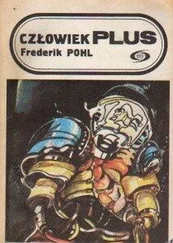She had never regretted marrying him.
There were a lot of lonely times. Fifty-four days when he was in Space Station Three. Any number of shorter missions. Two years on tour duty all over the world, working with the whole system of ground monitoring stations from Aachen to Zaire, with no proper home anywhere. Dorrie had given that up, after a while, and gone back to the apartment in Tonka. But she hadn’t minded. Perhaps Roger had; the question had never crossed her mind. Anyway, they had seen each other quite often enough. He had been home every month or two, and she kept her time full. There was her shop — she had opened it while Roger was in Iceland, with a five-thousand-dollar check he sent her for her birthday. There were her friends. There were, from time to time, men.
None of these filled her life, but she didn’t expect it to be filled. She rather expected to be lonely. She had been an only child, with a mother who could not stand her neighbors, and so she had not had very many friends. The neighbors couldn’t stand her mother very well, either, because her mother was a speed freak on a small scale, likely to be burned right out of her mind most afternoons, which made things complicated for Dorrie. But she didn’t mind that; she didn’t know there was any other way to live.
At thirty-one Dorrie was as healthy, as pretty and as competent to deal with the world as she ever had been or would be again. She described herself as happy. This diagnosis did not come from any welling up of joy inside herself. It came from the observed fact, looking at herself objectively, that whenever she decided she wanted something she always got it, and what other definition of happiness could there be?
She used the time until Ms. Hagar Hengstrom and her crew from Fem arrived to assemble a selection of ceramic ware from her shop on the coffee table before the couch she intended to sit in. What time was left she devoted to the less important task of brushing her hair, checking her make-up and changing into her newest laced-pants suit.
When the doorbell rang she was quite ready.
Ms. Hagar Hengstrom pumped her hand and walked in, brilliant blue hair and a curly black cigar. She was followed by her lightperson, her soundperson, her cameraperson and her prop boys. “Room’s small,” she muttered, appraising the furnishings with contempt. “Torraway will sit over there. Move it.”
The prop boys jumped to manhandle an easy chair from its place by the window to the corner now occupied by a breakfront, which they tugged into the center of the room. “Wait a minute,” said Dorrie. “I thought I’d just sit on the couch here—”
“Don’t you have the light reading yet?” Hengstrom demanded. “Sally, start the camera. You never know what we might use for rollunder.”
“I mean it,” Dorrie said.
Hengstrom looked at her. The voice had not been loud, but the tone was dangerous. She shrugged. “Let’s set it up,” she proposed, “and if you don’t like it we’ll talk it over. Run through for me, will you?”
“Run through what?” The pale young girl with the hand-held camera was pointing it at her, Dorrie noticed; it distracted her. The lightperson had found a wall socket and was holding a crucifix of floods in each hand, moving them gently to erase shadows as fast as they formed each time Dorrie moved.
“Well, for openers, what are your plans for the next two years? You’re surely not just going to hang around waiting for Roger Torraway to come home.”
Dorrie tried to make her way to the couch, but the lightperson frowned and waved her in the other direction, and two of the prop boys shoved the coffee table out of reach. She said, “I’ve got my shop. I thought you might like to have some of the pieces from it on camera while you interviewed me—”
“That’s fine, sure. I meant personally. You’re a healthy woman. You have sexual needs. Back up a little, please — Sandra’s getting a buzz from something on the sound system.”
Dorrie found herself standing in front of the chair, and there seemed nothing to do but to sit in it. “Of course—” she began.
“You have a responsibility,” Hengstrom said. “What sort of an example are you going to set young womanhood? Turning yourself into a dried-up old maid? Or living a naturally full life?”
“I don’t know if I want to discuss—”
“I’ve checked you out pretty carefully, Torraway. I like what I’ve found out. You’re your own person — as much as any person can be, anyway, who accepts the ridiculous farce of marriage. Why’d you do it?”
Dorrie hesitated. “Roger’s really a very nice person,” she offered.
“What about it?”
“Well, I mean, he offered me a great deal of comfort and support—”
Hagar Hengstrom sighed. “Same old slave psychology. Never mind. The other thing that puzzles me is your getting involved in the space program. Don’t you feel it’s a sexist shuffle?”
“Why, no. The President told me himself,” Dorrie said, aware that she was trying to score points in case of another visit from Dash, “that putting a man on Mars was absolutely indispensable to the future of the human race. I believe him. We owe a—”
“Play that back,” Hengstrom commanded.
“What?”
“Play back what you just said. Putting a what on Mars?”
“A man. Oh. I see what you mean.”
Hengstrom nodded sadly. “You see what I mean, but you don’t change the way you think. Why a man? Why not a person?” She looked commiseratingly at the soundperson, who shook her head in sympathy. “Well, let’s get to something more important: do you know that the whole crew of the Mars voyage is supposed to be male? What do you think of that?”
It was quite a morning for Dorrie. She never did get her ceramic pieces on camera.
When Sulie Carpenter came on duty that afternoon she brought Roger two surprises: a cassette of the interview, borrowed from the project public-relations (read: censorship) office, and a guitar. She gave him the cassette first, and let him watch the interview while she remade his bed and changed the water for his flowers.
When it was over she said brightly, “Your wife handled herself very well, I thought. I met Hagar Hengstrom once. She’s a very difficult woman.”
“Dorrie looked fine,” said Roger. You could not read any expression in the remade face or hear it in the flat tones, but the bat wings were fluttering restlessly. “I always liked those pants.”
Sulie nodded and made a note to herself: the open lacing up both sides of each leg showed a great deal of flesh. Evidently the steroids implanted in Roger were doing their job. “Now I’ve got something else,” she said, and opened the guitar case.
“You’re going to play for me?”
“No, Roger. You’re going to play.”
“I can’t play the guitar, Sulie,” he protested.
She laughed. “I’ve been talking to Brad,” she said, “and I think you’re going to be surprised. You’re not just different, you know, Roger. You’re better. For instance, your fingers.”
“What about them?”
“Well, I’ve been playing the guitar since I was nine, and if I stop for a couple of weeks my calluses go and I have to start all over again. Your fingers don’t need calluses; they’re hard enough and firm enough to fret the strings first time perfectly.”
“Fine,” said Roger, “only I don’t even know what you’re talking about. What’s ‘fret’?”
“Press them down. Like this.” She strummed a G chord, then a D and a C.
“Now you do it,” she said. “The only thing to watch out for, don’t use too much strength. It’s breakable.” She handed him the guitar.
He swept his thumb over the open strings, as he had seen her do.
Читать дальше












